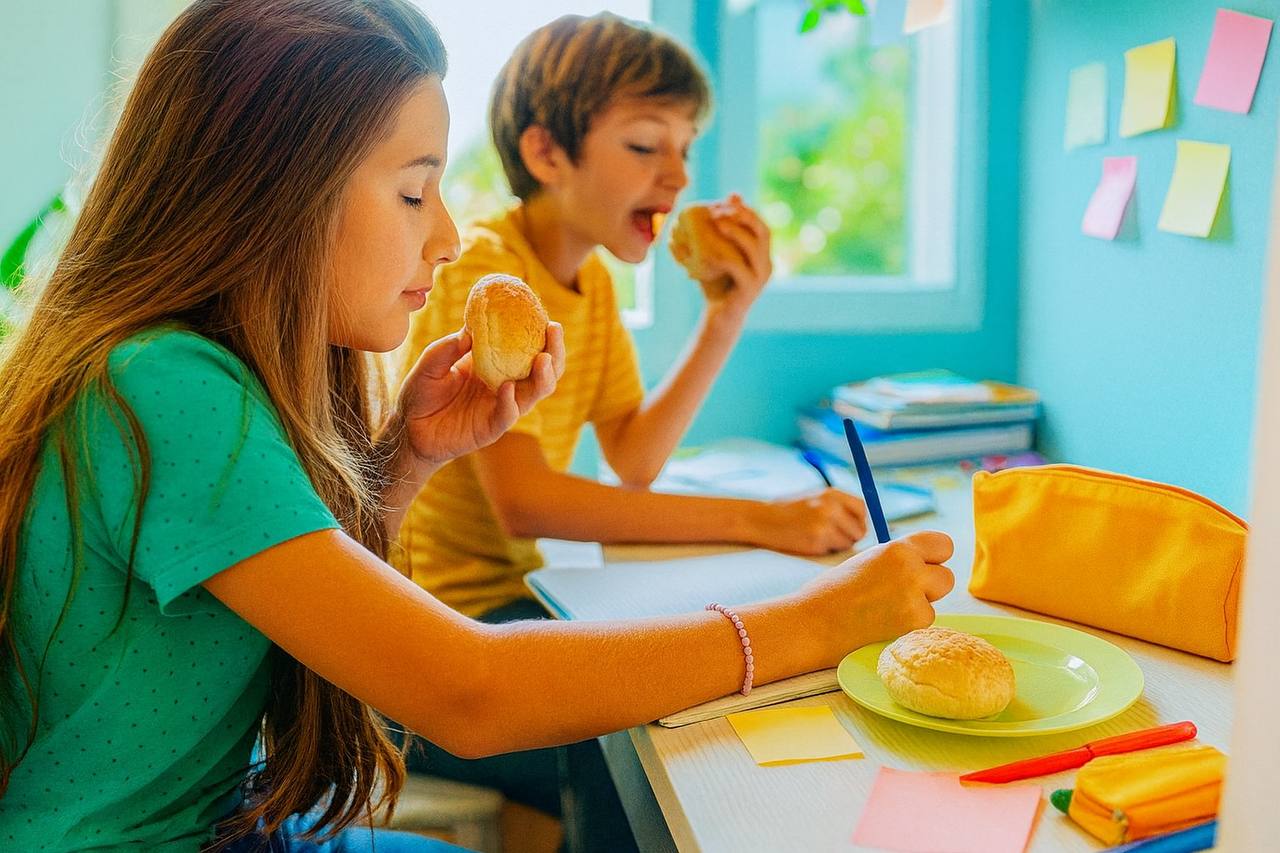
Snack Smarter: A Guide to After-School Eating and Homework Routines
We all know breakfast and lunch are vital for keeping kids fuelled and focused during the school day. But what about when they come home — tired, hungry, and still faced with homework? Dietitian Eloise Turner and Aussie Edu Hub Chief Learning Officer, Dr Selina Samuels, share their expert tips on what and when to eat to support learning after school.
Food is Fuel
Nutritious food doesn’t just support healthy growth and development — it also plays a crucial role in mental health, academic performance, and cognitive skills like concentration and memory.
Eloise Turner, dietitian at healthy snack company Fodbods, explains:
“Nutrients such as omega-3 fatty acids, iron, and vitamins B6, B12, and D are essential for brain function. Diets high in added sugars, salt, and unhealthy fats — think lollies, chips, soft drinks, fried foods — have been linked to behavioural and emotional challenges. On the other hand, balanced diets with lean proteins, healthy fats, and low-GI carbohydrates can boost mood and overall wellbeing.”
The Importance of the After-School Snack
An after-school snack should be substantial enough to keep kids going until dinner. It restores energy and helps maintain focus for homework.
Eloise recommends options such as cheese and crackers, yoghurt, fruit, popcorn, nuts, veggie sticks with hummus, or Fodbod Buddies. The timing can vary — before or after homework depending on the child — but she advises avoiding snacks during homework to prevent distraction and mindless eating.
The Value of a Break Before Homework
Dr Samuels advises students to take a short break before starting homework:
“Get moving — go for a walk with the dog, play outside, or run around with siblings. Then they can focus on homework with a clear mind.”
When’s the Best Time for Homework?
Homework timing depends on the child and the family environment:
- Busy households: Some students may benefit from staying at school to use the library or heading to a local library.
- Tired after school: Others might need downtime or even a quick nap before tackling work.
- Teenagers: Often focus better in the evening, sometimes splitting homework into before-dinner and after-dinner sessions.
Whatever the timing, Dr Samuels stresses the importance of prioritising sleep, as tired brains learn less effectively.
When’s the Best Time for Dinner?
Eloise recommends keeping dinner time consistent to support healthy sleep patterns. Balanced meals should include:
- Lean proteins (chicken, fish, tofu)
- Whole grains or low-GI carbs (brown rice, whole wheat pasta)
- Plenty of colourful vegetables
Avoid heavy, high-fat meals too close to bedtime, as they can cause discomfort and disrupt sleep.
How Much Homework Should Kids Do?
- Year 3: About 30 minutes of reading or times tables each night; minimal weekend work.
- Years 5–6: Longer projects on weekends to develop planning and time management skills.
- Years 7–8: Around one hour per night, plus weekend reading.
- Years 9–10: 1–2 hours most nights; roughly four hours on weekends.
- Years 11–12: At least two hours a night (sometimes three) and around six hours on weekends, increasing before final exams.
The Takeaway
After-school hunger and fatigue can lead to lower focus, motivation, and energy — all of which make homework harder. Combining nutritious food with adequate rest and smart scheduling ensures children can learn effectively, stay motivated, and maintain their overall wellbeing.
At Aussie Edu Hub, we know that healthy routines — both in eating and studying — are key to academic success.



